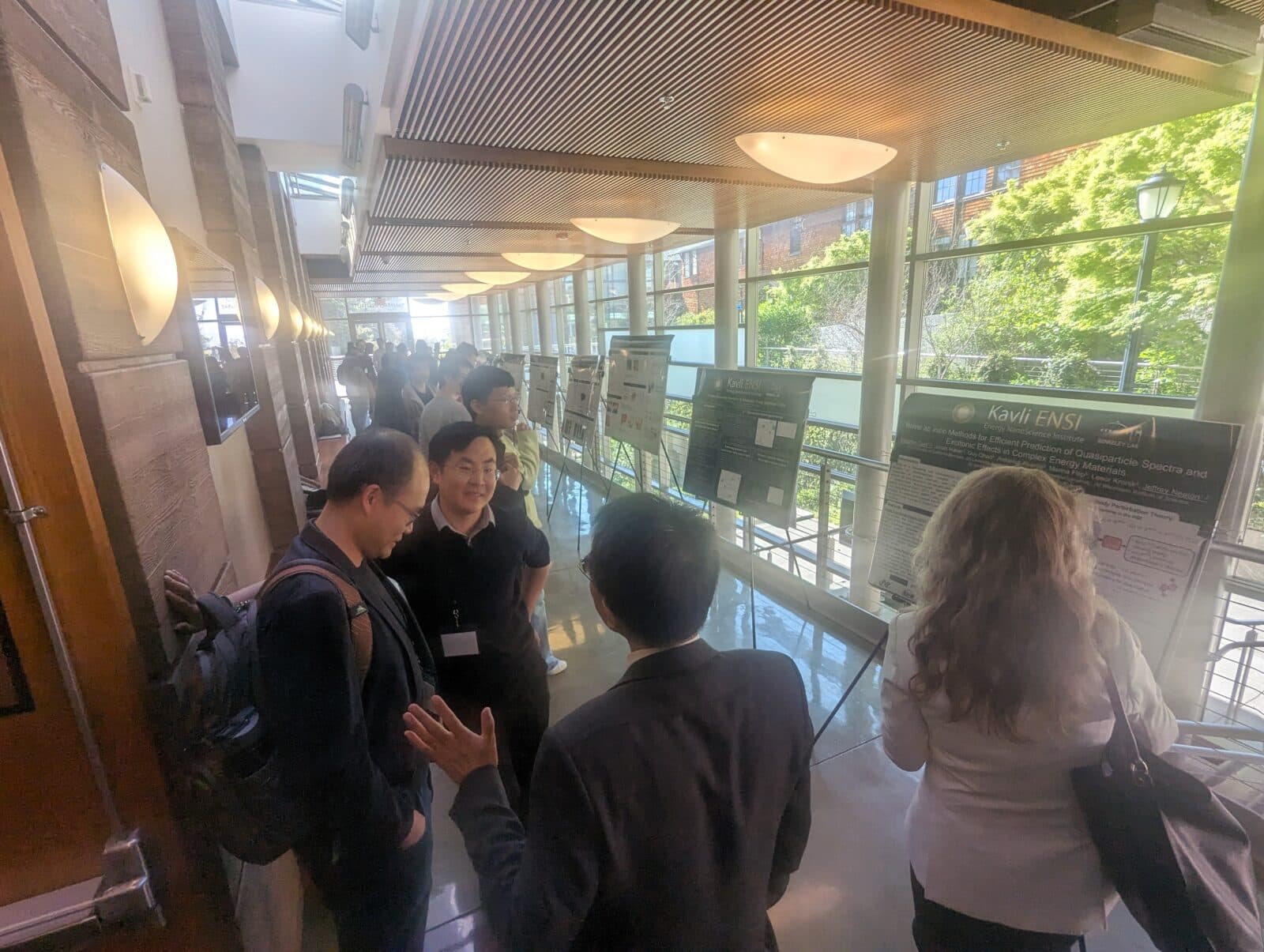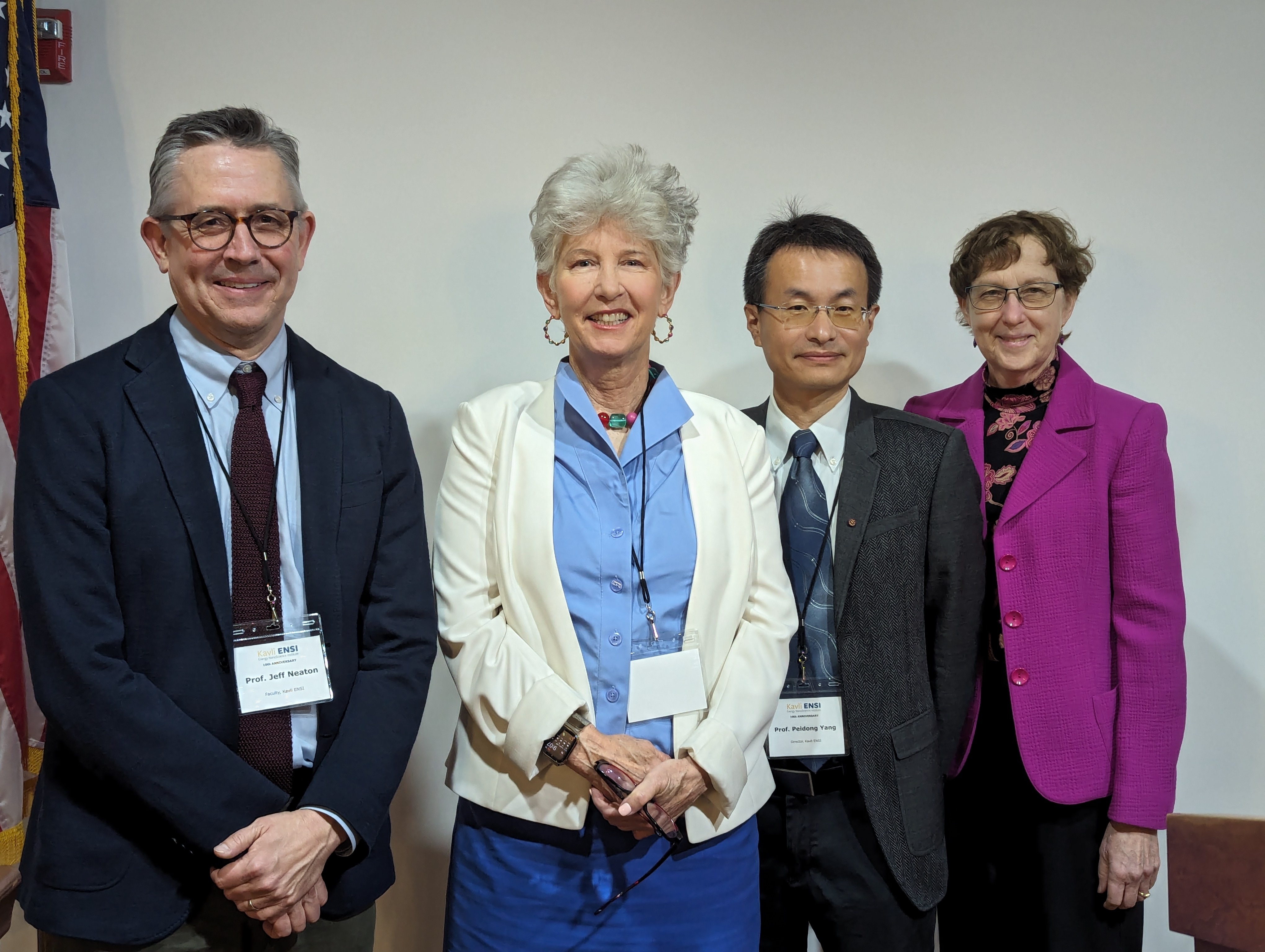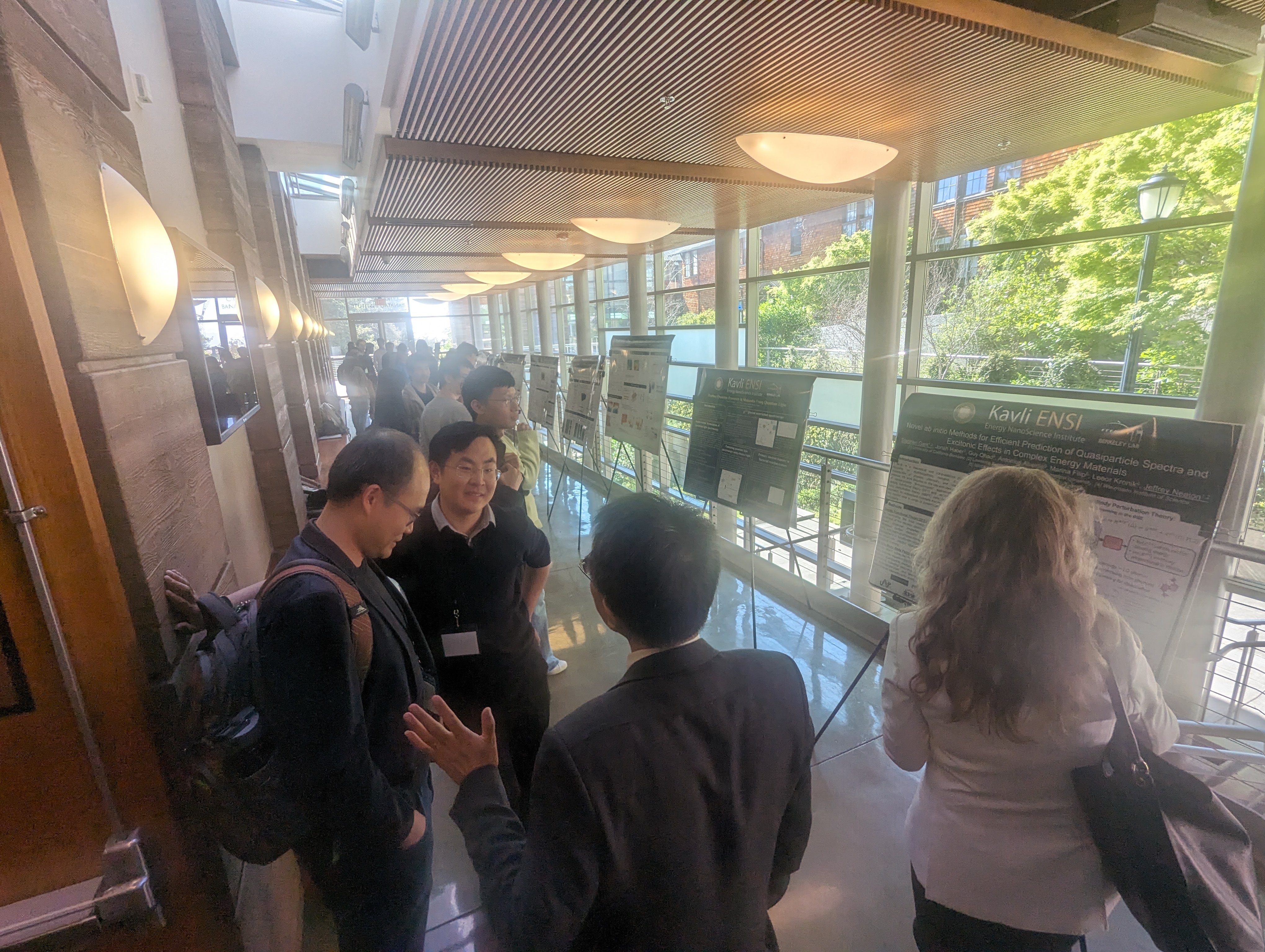10 Years and Beyond: Celebrating the Impact of Kavli ENSI
by Zhuoying Lin
The Kavli Energy NanoScience Institute at UC Berkeley and Berkeley Lab celebrates ten years of scientific excellence in nanoscience

The Author
When nanoscience emerged in the 1980s, it soon became one of the most invested research concepts in the 21st century. The size-dependent, performance-enhancing properties of nanomaterials has made them applicable to almost every field of science, leading to advancement in applications ranging from quantum dot TVs to energy conversion and storage applications.
“Nanoscience has become the central part of modern science over the last four decades,” said Peidong Yang, Professor of Chemistry at UC Berkeley and the director of the Kavli Energy NanoScience Institute (Kavli ENSI). “It fundamentally changes our daily life and technology, yet there is still a lot more to explore.”
Since 2014, Kavli ENSI has aimed to leverage nanoscience to tackle global energy challenges in the 21st century for a more sustainable future. This involves drawing inspiration from nature’s elegant mechanisms such as exploring how photosynthesis captures plentiful energy and engineering nanomaterials into devices that resemble natural processes. With this vision in mind, Kavli ENSI has summoned a highly interdisciplinary team comprising 22 prominent research groups from UC Berkeley and Lawrence Berkeley National Laboratory to create innovative approaches in energy conversion and application.
From designing enzyme-inspired metal organic frameworks (MOF) as catalysts for CO2 conversion, synthesizing nanomotors motivated by biological molecular motors to engineering nanowire-bacteria hybrids for artificial photosynthesis, Kavli ENSI scientists have achieved significant breakthroughs towards transformative applications. Research has also expanded lately to study and design quantum materials such as topological insulators for quantum computing.
“Over the ten years, Kavli ENSI scientists have been pushing the boundaries and have made significant breakthroughs in broadly defined energy nanoscience. There are many exciting examples, from light harvesting MOF, photosynthetic biohybrids, Wigner crystals, to materials discovery based on artificial intelligence," Yang said.

The mission at Kavli ENSI
“The energy and environmental challenges we face today are not something we can solve in this generation; it requires collective effort from one generation to another,” Yang said. “At ENSI, we are committed to training next-generation scientists for cutting-edge research.”
As one of the biggest achievements, Kavli ENSI has successfully empowered numerous young scientists to become independent investigators in esteemed research institutes through the Heising-Simons Junior Fellowship program. Former fellows, including Professor Cong Su (Yale University), Professor Shaowei Li (UC San Diego), and Archana Raja (Lawrence Berkeley Lab) showcased their ongoing research at the 10th anniversary symposium. Archana, the very first Heising-Simons Junior Fellow awarded in 2016, has recently been selected as a faculty member at Kavli ENSI.

“The talks given by our former and current students were fantastic, everyone was impressed. It really showcased the creativity of our young ENSI graduate and postdoc fellows,” Yang said.
Kavli ENSI fosters a unique learning environment to support graduate student training through science education and outreach. The monthly research seminar provides a platform for graduate students to present their research that facilitates intellectual exchange, while an annual, full-day conference will be hosted as a networking retreat for faculty and students within the Kavli community. In addition, the institute has established an international exchange program with the Winton Program for the Physics of Sustainability at the University of Cambridge, which encourages students to work on research projects of their interest at the host university.
“It’s been a great partnership with The Kavli Foundation and Berkeley Lab,” Yang affirmed. “We will continue to support our next generation scientists and advance fundamental research in energy nanoscience.”